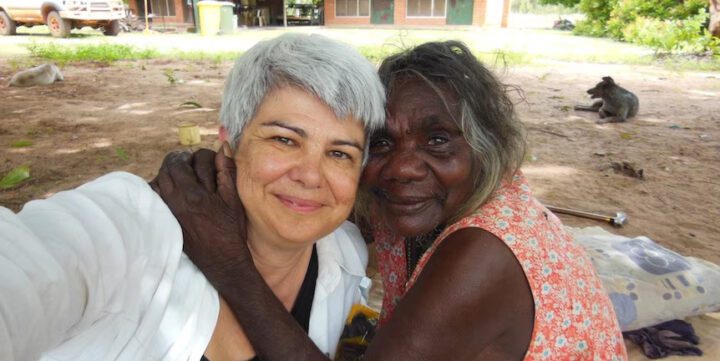GPs Recognised in 2025 King’s Birthday Honours List
August 13, 2025
GPs of service
In a medical landscape increasingly dominated by subspecialisation, technology, and centralised services, it’s easy to overlook the enduring, essential role of the general practitioner, particularly those who choose to serve in Australia’s most remote and underserved regions. This year’s King’s Birthday Honours offered a timely reminder of the value of rural general practice, recognising a cohort of GPs whose careers were marked by long service, community trust, and a commitment to doing the hard yards where they are needed most.
Among those honoured were two figures whose careers reflect not only personal dedication but also the broader challenges and triumphs of general practice in Australia: Dr Margaret Niemann and Dr David Iser.
A career of curiosity
Dr Margaret Niemann never set out to become a rural doctor. Her path into medicine was guided not by tradition or legacy, in fact, she had no family in healthcare whatsoever, but was drawn in through an adolescent fascination with people. Her curiosity about how people live, think, and recover from adversity ultimately drew her into general practice. It was there that she discovered those questions playing out daily in all their complexity.
After years in regional Victoria, she and her husband relocated in the late 1990s to Maningrida, a remote First Nations community in Arnhem Land. At the time and due to the spanning distance between townships, infrastructure was minimal and professional isolation was the norm. Together, they were the town’s first full-time resident GPs, stepping into a clinic with barely functional equipment and little peer support, taken in by locals and immediately welcomed with open arms. The transition was stark and formative. “You learn quickly what you can manage, what you can improvise, and when to call for help,” she has said in past reflections on the move. But beyond the clinical demands, it was the human stories, often marked by intergenerational trauma and chronic disease, that left the deepest impression.
Niemann’s career in the Territory crystallised her growing interest in mental health. With further qualifications in psychological medicine, she developed expertise in areas like complex grief and trauma recovery, which she later applied in both clinical work and education. For nearly 20 years, she was also a rural health educator at Monash University, quietly influencing a new generation of doctors to consider careers outside the city.
What makes Niemann’s legacy so resonant isn’t just the length of her service or the remoteness of the settings, it’s the way she worked in relationship with the community. She was not a fly-in, fly-out clinician; she became part of the social and cultural fabric of the places she served. And that, perhaps more than any policy or program, is what builds trust in healthcare.
Uncovering a purposeful career
Dr David Iser’s story begins in Bendigo, where as a teenager he once considered becoming an engineer, or perhaps something more glamorous, like a spy. Medicine seemed unlikely, at least according to his school’s career adviser. But encouragement from an older brother, and a stealthy edit to his university preferences by his mother, nudged him toward a path he hadn’t fully imagined.
Fast-forward several decades, and Dr Iser has spent the majority of his career serving the people of South Gippsland, particularly in the coastal town of Foster. When he arrived in the late 1990s, the town was busy with births, emergencies, and chronic disease, and short on hands to manage it all. He was routinely on call, attending births, assisting with minor surgeries, and doing it all with the minimal support that typifies rural general practice.
One early obstetric case involved delivering a premature breech infant via emergency caesarean, a procedure he had never performed, coached through the steps over the phone by a remote obstetrician. It was a vivid example of the improvisation and courage that rural medicine demands. But Iser is also candid about the costs. He speaks openly about a clinical mistake early in his career that affected him deeply. Rather than retreat from the profession, he used the experience to strengthen his approach to communication and care. His message to students is consistent: “You will make errors. Own them. Apologise. Keep showing up.”
Iser’s influence has always extended beyond the clinic. For over a decade he served as the Shire Medical Officer of Health, advising on public health issues ranging from water safety to immunisation. He was also a long-time educator with Monash University, mentoring rural students and modelling a career path that is rarely glamourised but critically important, and after all, one he needed a bit of encouragement to consider.
Despite these accomplishments, Iser is self-effacing about the honour. Like Niemann, he views the award in this year’s King’s Birthday Honours a reflection of his patients, colleagues, and community.
Power of continuity
General practice, particularly in rural areas, is about much more than diagnosis and management. It is about context, continuity, and compassion. It is about knowing the patient not just in the moment of crisis, but over years (sometimes decades) through births, illnesses, recoveries, and loss.
Both doctors highlighted here were educators as well as clinicians throughout their incredibly busy careers. This is because they understood that the future of medicine, particularly in rural Australia, rests not just on recruitment but on mentoring, as well as the fact that their impact can be broader and wider when they’re lessons are learnt by more. Their teaching was not just about passing exams or refining procedural skills. It was about transmitting a philosophy of care rooted in humility and human connection.
It’s never ill-timed to ask; how do we better support the next generation of doctors to take up the mantle of rural general practice? How do we ensure that the GPs of tomorrow are not forced to choose between sustainability and service? We know that the answers lie in more than funding alone. They require a shift in how we talk about general practice, how we teach it, and how we value it culturally. If we want future Dr Niemanns and Dr Isers, we must build a system that sustains them, not one that exhausts them.
These honours serve as a reminder that medicine is not only about breakthrough technologies and cutting-edge research, but also about the quiet, enduring commitment to community care, the kind that happens behind clinic doors, far from headlines, but at the very heart of health. Congratulations.












